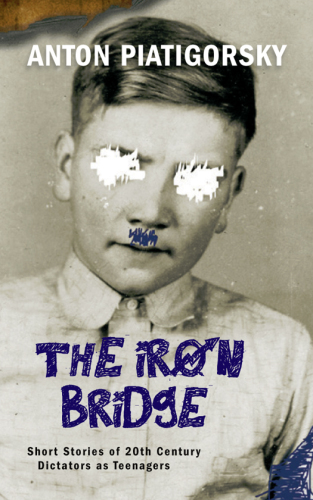
The Iron Bridge
Short Stories of 20th Century Dictators as Teenagers
فرمت کتاب
ebook
تاریخ انتشار
2013
نویسنده
Anton Piatigorskyناشر
Steerforth Pressشابک
9781586422196
- اطلاعات
- نقد و بررسی
- دیدگاه کاربران
نقد و بررسی

June 10, 2013
The 20th century’s most bloodthirsty tyrants are given humble beginnings in this collection of six stories by acclaimed playwright Piatigorsky. Through smart dialogue and revealing internal monologue, he brings to life the teenage years of Adolf Hitler, Josef Stalin, and Idi Amin, among others. Though it is difficult to separate these young men from the horrible acts they will later commit, Piatigorsky circumvents readers’ preconceptions by drawing on small moments that humanize his protagonists, instead of pinpointing exactly when things went wrong. The use of nicknames (Adi for Hitler, Soso for Stalin) is especially deft in drawing attention away from the historical inevitabilities. Though the descriptive prose is periodically stale and forced, Piatigorsky’s experience as a playwright comes through in quick and entertaining dialogue that feels true to the varied time periods and sustains momentum through each long story. When the young Adi Hitler defensively says, “It is a terrible mistake to judge an artist by the same standard as one would judge an artisan,” the comment is not just true to history, but revealing of a historical monster’s human side.

April 15, 2013
A debut collection of short fiction that takes documentary day-in-the-life snapshots from the lives of six evil exemplars. American-born Piatigorsky makes his home in Toronto. His libretto for the chamber opera, Airline Icarus, won the Italian Primo Fedora Award. A playwright, he has won the Dora Mavor Moore Award twice. His success in the theater has not translated to his debut fiction. In "Tea is Better Than Pepsi," we meet Idi Amin. He is a cook for British and Ugandan soldiers. Amin dreams big; his dream comes true. Sar, who grows up to be Pol Pot, seems naive, amorous and conflicted in "A Plaything For the King's Superfluous Wives." In "The Consummation," young Mao Tse-Tung is defiant and abashed, unable to do the deed to consummate his arranged marriage. We meet Stalin before he is Stalin, already insisting on his nickname Koba, during his tenure as a conniving and vengeful seminarian in Tiflis. Rafael Trujillo, called chipita or bottle cap, is an obsessive-compulsive dandy. Hitler is grandiose, obsessed with Wagner, the malevolence of whores and his father's abuse. Without our knowledge of their futures, these young men appear unremarkable. But this collection does not do more than that; it does not tell us anything we don't already know about the vagaries and surprises of maturation. That some men grow up to be dictators is a truism Piatigorsky fails to make compelling. The concept cannot overcome the weakness of the execution.
COPYRIGHT(2013) Kirkus Reviews, ALL RIGHTS RESERVED.




دیدگاه کاربران